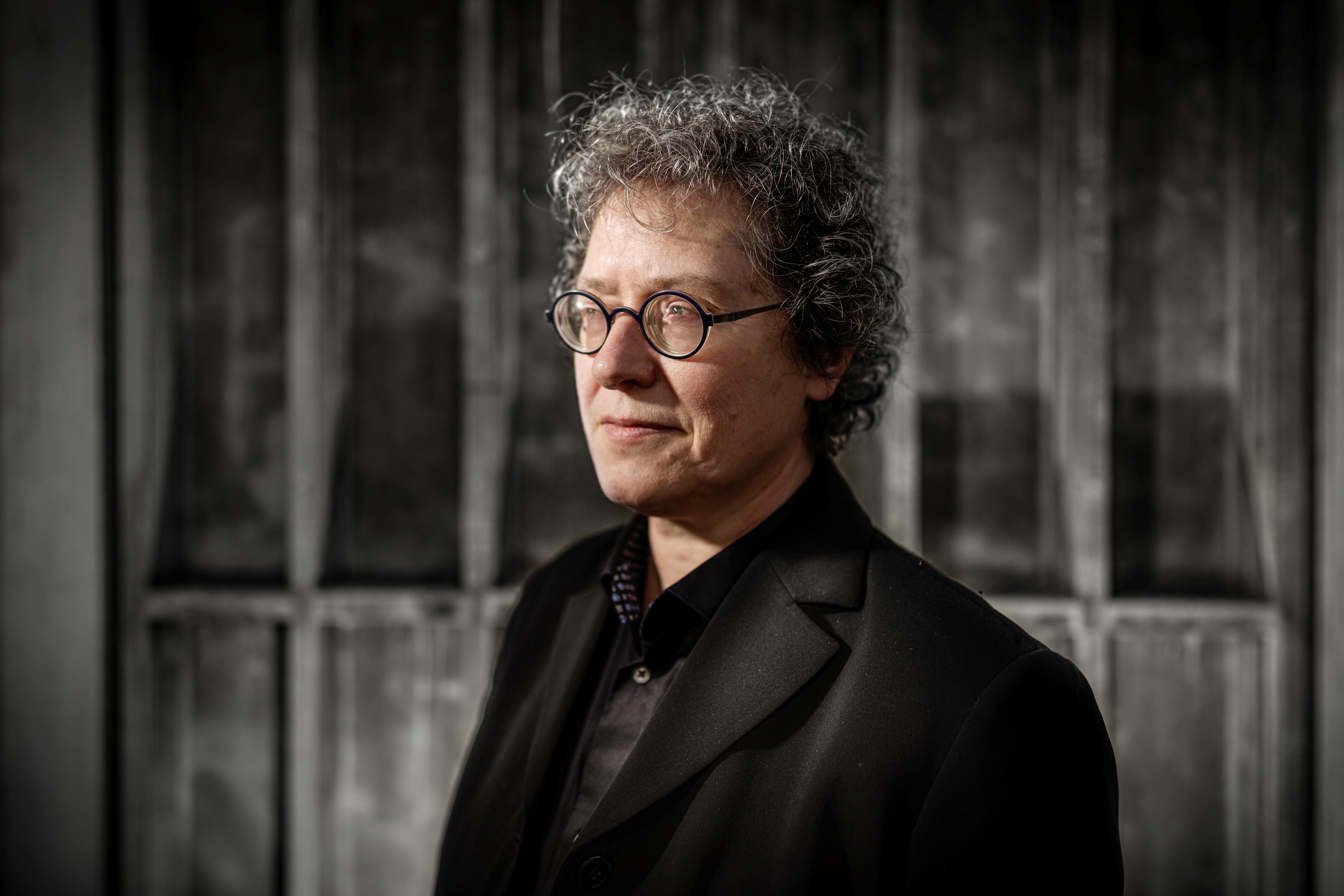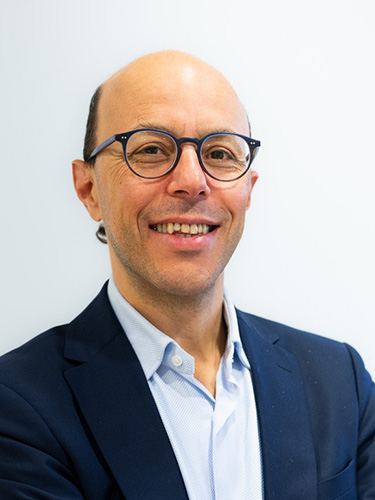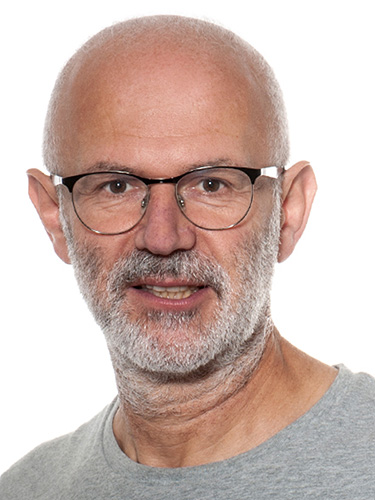Advanced Grantees Interview
Prof Lorenza Mondada, Prof Mohamed Bentires-Alj and Prof Marc Donath have been awarded with the prestigious SNSF Advanced Grants 2024. They shared their experiences and motivations to apply and receive such project grants and what it means to them.
Congratulations, you have been awarded an SNSF Advanced Grant! This is a highly prestigious project grant that provides you with funding for a 5-year project.
What will have changed or what will change by the time the project is completed?
Marc Donath: We expect to uncover novel pathways that regulate the distribution of cellular nutrients (glucose, fatty acids) and understand their functional consequences in situations such as overeating, exercise, infection. We believe this will have implications for the treatment of diabetes, as drugs may have positive or negative effects on nutrient partitioning, which may, for example, impair exercise or dietary capacity.
Lorenza Mondada: This project is a unique occasion to engage in in-depth conceptual reflections based on solid empirical grounds. Contrary to ordinary projects that are much more focused on one specific topic, the Advanced Grant enables to think in a wider way about fundamental issues. In my case, the project deals with how time is experienced in social interaction. In my field — interactional linguistics, conversation analysis — temporality has been long recognized as constitutive for understanding the step-by-step, moment-by-moment way in which co-participants to social interaction engage in joint action and organize it, build a shared definition of the context and accomplish their intersubjectivity. While temporality of talk has been well studied, the temporality of interacting bodies remains still to be explored. The project will offer a systematic conceptualization of various temporal orders of embodied interaction: this includes how bodies precisely coordinate with each other, how bodies orchestrate simultaneous actions, how embodied interaction mobilizes a high diversity of resources (from gaze, facial expressions, and gestures to body postures and movements of the entire body). Differently than talk — where generally one person speaks at a time, which linearizes and simplifies temporality — embodied action mobilizes multiple temporalities together within the sequential unfolding of courses of action: these organizational principles have still to be systematically formulated. That’s what the project promises to deliver.
Mohamed Bentires-Alj: We would like to identify the cellular and molecular mechanisms underlying tumor dormancy and metastasis. We will pursue higher-risk, higher-reward opportunities that were previously beyond our reach. The Department of Biomedicine in Basel that unites basic and clinical scientists allows and supports such opportunities.
Lorenza Mondada is Professor for general and French Linguistics at the Department of Languages and Literature (since 2012). Her research focuses on social interaction in various settings (ordinary, professional and institutional).
The SNSF Advance Grant Project Timed Bodies – Multiple temporalities of embodied actions in social interaction will explore temporality as the fundament of the interactional order and practices in talk and social interaction.
Applying to an SNSF Advanced Grant is a lot of work and the success rate is rather low. What was your motivation to do so?
Bentires-Alj: A former member of the ERC scientific council once said "ERC funding is like an Olympic medal!" This is also the case for the SNSF Advanced Grants! Our motivation is curiosity, venturing into terra incognita like the cartographers and explorers of previous centuries! The thrill of exploring scientific questions and mechanistic studies of high medical impact.
Donath: I have always focused on the relevance of the scientific question I want to address and the means to do so.
Mondada: I was awarded a similar grant in Finland in 2015-2017 (Finland Distinguished Professor grant) and I experienced the incredible creative impetus that is brought by large freedom and comfortable financial means to do research. I wanted to try again and secure conditions for research that more ordinary projects — more focused on specific topics — do not allow. At an advanced stage of the career, it makes a lot of sense to be able to engage in more fundamental, systematic, groundbreaking work. I knew the chances to get the grant were low but this was not a problem: already the sheer fact of writing the project gave me a lot of new ideas, together with ideas about how to consolidate what I was doing and willing to develop in the future.
Mohamed Bentires-Alj is Professor at the Department of Biomedicine and co-chairs the research area of Cancer Biology. He focuses on breast cancer research as well as on services to the community, for example in the Basel Breast consortium or the Swiss Personalized Oncology scientific board.
The Project From Dormancy to Metastasis: unveiling hidden mechanisms and preventing the fatal switch in breast cancer will explore the mechanisms underlying the dormancy of tumor cells and how they can become active again after years.
Can you tell us, how you came to be in a position to apply for and receive this grant? What other projects prepared you? What preparatory work did you do before, for example preliminary results that you could use to structure the proposal?
Mondada: I submitted this project while working on other accepted and to-be-submitted projects that were more focused on specific issues: A SNF project that explores how weather and suddenly changing weather conditions affect social interaction, another SNF project on the sensorial bases of joint action, and a Lead Agency SNF-FAPESP (Switzerland-Brazil) project on “Making bones talk” studying the collaborative work in a forensic laboratory investigating the remains of disappeared political activists. These projects are innovative and exciting, contributing to important contemporary issues, like climatic change as it is experienced in ordinary life, and the politics of knowledge concerning human remains. These projects also opened a need for a more fundamental, comprehensive, integrative reflection on bodies, materialities, knowledge and sensoriality in social interaction, which is made possible by the Advanced grant.
Bentires-Alj: We had to find the right balance of exploratory unbiased approaches and also have a well-defined mitigation strategy in place. Sound and convincing preliminary data that were generated by talented current lab members were very useful. Also, the support of several outstanding collaborators from Basel and abroad helped significantly.
Donath: At this stage I had my question and some data to support the concept, so it felt like the right time to apply.
Marc Donath is Professor at the Department of Biomedicine and focuses on investigating the role of the immune system in the development of obesity and type 2 diabetes.
In the SNSF Advanced Grant Project Immune-neuro-metabolic regulation of the distribution of cellular nutrients and its functional consequences he and his team will explore the interplay between the immune system, nerves, and metabolism at the organism level.
Starting a research career such as yours is difficult. Career grants for early career researchers also have very low success rates and make it hard to acquire own third-party funding. One way of gaining experience, is working in projects such as yours. How will you include early career researchers in your project and what can they expect to learn?
Bentires-Alj: I was fortunate to have received an ERC Starting Grant, then an ERC Advanced Grant and now the SNSF Advanced Grant. These grants were extremely helpful not only for the success of our research program but also for training the next generation of scientists that went on to start their own labs with their independent research programs…and also receive competitive ERC grants! It’s incredibly rewarding to witness former trainees excel and succeed.
“The best teachers are those who know how to turn themselves into bridges and invite their students to cross them.” said the Greek writer and philosopher Nikos Kazantzakis.
Donath: I have always tried to support younger colleagues and my door has always been open, regardless of the scholarship.
Mondada: I always attached a lot of importance in the integration of young researchers in my research projects, articulating advanced training, exchanges with the best international scholars in the field, and original advanced research. That’s where they learn not only grand epistemological debates but also the tricks of the trade. Research is an everyday engagement with all kinds of issues, from preparing the adequate video cams and mics for a complex fieldwork to battling with the reviewers evaluating an article, from practices for grounding rigorous empirical analyses to discussions about the politics of panel participation in a big conference. This can be only experienced in a team, where teamwork mixes young researchers from different international backgrounds, early doctoral researchers with advanced post-docs, around a common vision of doing science. I have the chance of working with a team of a dozen of young persons, sharing our everyday life in the lab and on the field. Within this collective dynamic everyone develops a sense of collaborative research work with their own scientific topics, progressively learning how to position themselves in the scientific field and the complex web of conditions that make a project possible. This is fundamental for then writing a competent, comprehensive, innovative and convincing project.
Thank you very much. We wish you and your teams the best of luck for a successful project.
Short summaries of the planned research projects have already been highlighted in the University of Basel News in January.





